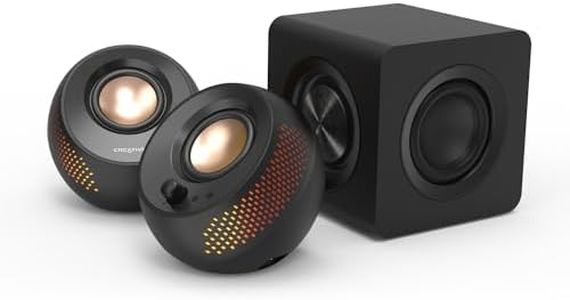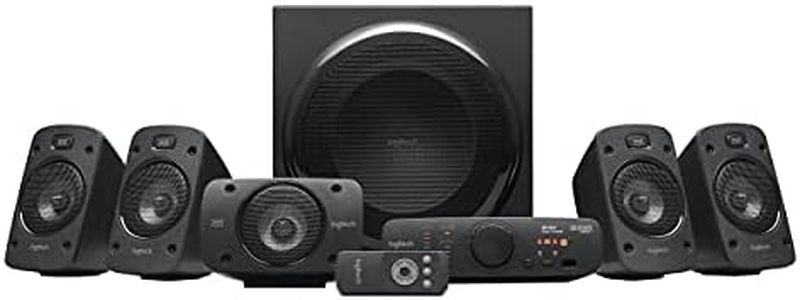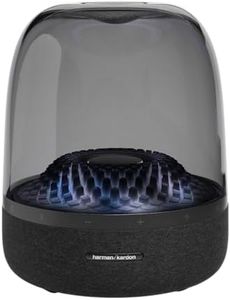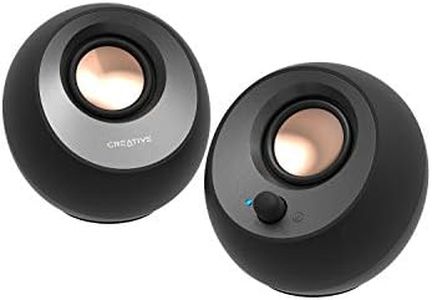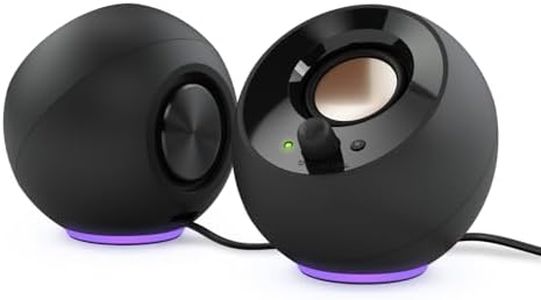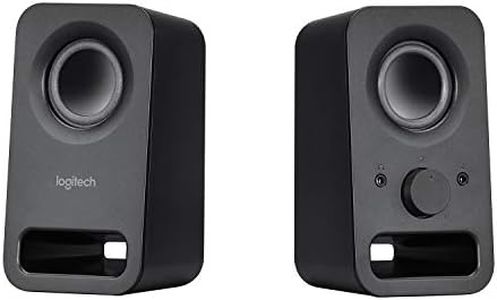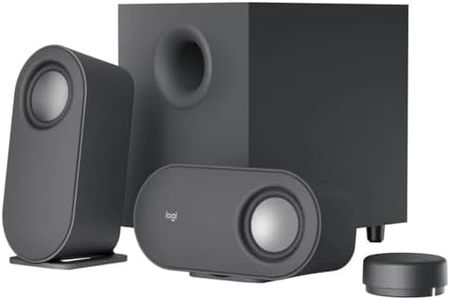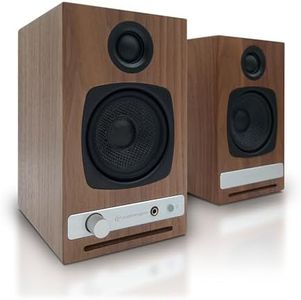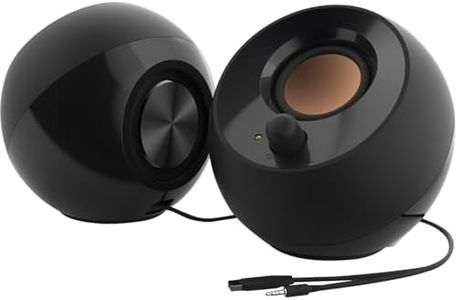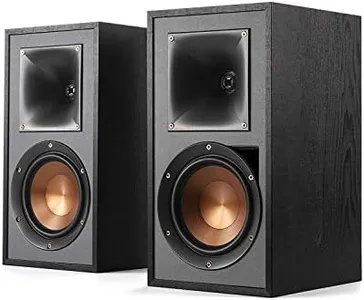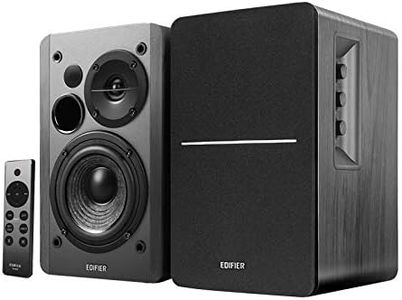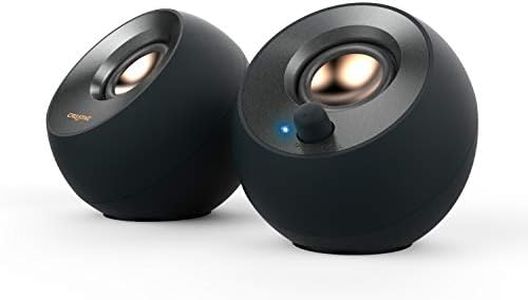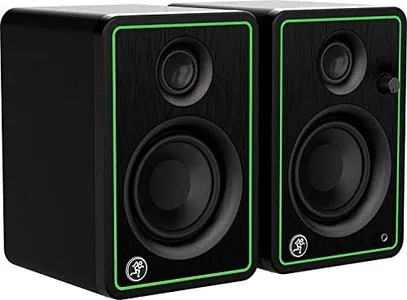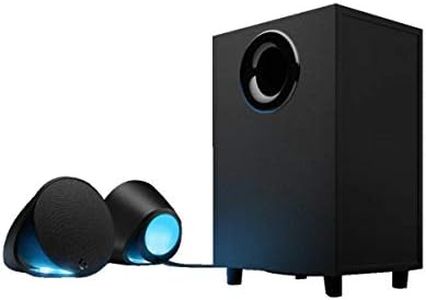We Use CookiesWe use cookies to enhance the security, performance,
functionality and for analytical and promotional activities. By continuing to browse this site you
are agreeing to our privacy policy
10 Best Computer Speakers
From leading brands and best sellers available on the web.By clicking on a link to a third party's website, log data is shared with that third party.
Buying Guide for the Best Computer Speakers
Choosing the best computer speakers can greatly improve your experience whether you're listening to music, watching movies, or joining online meetings. To find the right pair, it's important to understand some key features that affect sound quality, size, connectivity, and how the speakers will fit into your workspace. Thinking about how you primarily plan to use your speakers will help guide your decision toward the best match for your needs.Sound QualitySound quality is how clear, rich, and full the audio sounds when played through the speakers. This is probably the most important feature, as it directly affects your enjoyment of music, movies, or games. Speakers can vary from basic ones that just get the job done, to those that produce detailed, layered sound with deep bass and sparkling highs. If you're mainly using them for calls or background music, simple speakers will suffice. For movies, music, and gaming, look for ones that reviewers describe as having fuller or balanced sound.
Speaker System Configuration (2.0 vs 2.1 vs 5.1)This refers to the number of speakers and whether there's a subwoofer included. A 2.0 system has just two speakers for stereo sound, while a 2.1 system adds a subwoofer for more powerful bass. A 5.1 system includes surround sound for a more immersive experience, great for gaming and movies. If you want simplicity and space-saving, 2.0 is usually enough. If you love bass-heavy music or want a richer movie experience, a 2.1 system might be better. Surround sound (5.1) is best if you have the space and want the most immersive audio environment.
ConnectivityConnectivity is how the speakers connect to your computer—through wires, Bluetooth, or USB. Wired connections usually offer the most reliable sound quality, while Bluetooth is great for less clutter and using the speakers with multiple devices, like your phone. USB speakers are simple to set up but may have fewer settings you can adjust. Pick wired if you care most about steady, high-quality sound and don't move your speakers, or Bluetooth if you want more flexibility and convenience.
Size and DesignSize and design matter depending on your workspace and personal preference. Larger speakers may offer bigger sound, but they take up more room, which might not work if your desk is small. Sleek and compact designs are easier to fit anywhere and blend into your setup. If appearance and desk space are considerations, choose smaller and more modern-looking speakers.
Controls and FeaturesControls and features include options like volume dials, bass or treble controls, headphone jacks, or remote controls. Some people prefer all controls easily accessible on the speaker, while others are fine adjusting from the computer. Added features like headphone ports or easy access to volume can improve your everyday use, so think about how much hands-on control you want.
Power OutputPower output, often measured in watts, tells you how loud and powerful the speakers can get. For a small room or personal listening, lower wattage is fine. For louder sound, filling larger rooms, or more bass impact, you may want speakers with higher power. Always match power to your typical listening environment—more wattage for parties and large spaces, less for individual and quiet usage.
